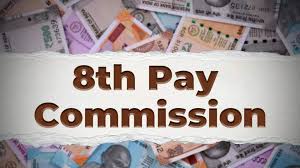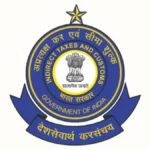Cabinet Nod for 8th Pay Commission Implementation
Introduction to the 8th Pay Commission
On January 10, 2025, the Union Cabinet approved the formation of the 8th Pay Commission, marking a significant step in revising the salary structure for central government employees. This decision aims to enhance the pay and allowances of government employees and ensure a better quality of life. The new commission will examine the pay, allowances, and pensions of over 50 lakh central government employees and 65 lakh pensioners. The implementation of this commission will also address the rising cost of living and provide much-needed financial relief to government workers.
The Role of the 8th Pay Commission
The primary objective of the 8th Pay Commission is to review the existing pay structure and make necessary revisions. The Commission is expected to ensure that salaries and allowances are in line with the inflation rate and the overall economic conditions. This move is crucial in maintaining the morale and productivity of government employees, as well as improving their standard of living.
The recommendations of the 8th Pay Commission are anticipated to have a significant impact not only on central government employees but also on the broader Indian economy. The increased spending power of employees could lead to a boost in consumption, thereby contributing to economic growth. This change is expected to be implemented within the next few months, after the commission submits its report.
Timeline for Implementation
The cabinet has announced that the process of implementing the 8th Pay Commission will begin soon, with the Commission expected to submit its recommendations by mid-2025. Following this, the government will begin the process of implementing the revised pay structure, which will come into effect in the financial year 2025-26.
Impact on Government Employees
This decision will have a far-reaching impact on central government employees across various sectors. Employees from the defense, police, railways, and educational sectors will benefit from improved pay scales and allowances. This decision is also seen as a step towards bridging the pay disparity between government employees and those in the private sector.
Conclusion
The approval of the 8th Pay Commission is a historic step in ensuring better financial stability and job satisfaction for government employees. It will pave the way for a significant change in the pay structure, ultimately benefiting millions of people working across various sectors in India. The implementation of the 8th Pay Commission will contribute to enhanced productivity, efficiency, and well-being among government employees.

Why This News is Important
Economic Impact on Government Employees
The approval of the 8th Pay Commission is crucial for enhancing the standard of living of government employees. With the rise in the cost of living and inflation, the need for better pay has been a long-standing demand. This step will not only provide better financial security but also improve employee morale and productivity. Government employees from sectors such as defense, police, railways, and education will especially benefit from the revised pay and allowances, ensuring that they can keep up with rising expenses.
Influence on the Indian Economy
The implementation of the 8th Pay Commission will have a ripple effect on the Indian economy. With the central government employees receiving a salary hike, their increased spending capacity will stimulate demand in the economy. This increased consumption can lead to higher economic growth and create a more prosperous environment. It is expected that the decision will provide a boost to various industries, from retail to real estate, due to the greater purchasing power of employees.
Strengthening Government Workforce
The implementation of this pay revision will help the government attract and retain talent in various sectors. Offering competitive pay packages will encourage high-quality professionals to join government services and remain motivated in their roles. This decision will thus play a key role in strengthening the efficiency and capability of the public sector workforce, contributing positively to the country’s development.
Historical Context: Background Information on the Pay Commissions
India has seen a long history of Pay Commissions aimed at revising the salary structure of government employees. The 1st Pay Commission was constituted in 1947, following India’s independence, to revise the salaries of civil servants in the newly-formed government. Since then, subsequent Pay Commissions have been set up at regular intervals to ensure that the salaries of government employees remain competitive with the inflation rate and economic conditions.
The 7th Pay Commission, which came into effect in 2016, was one of the most significant pay revisions in India’s history, with an average salary increase of 23.55%. With time, the 7th Pay Commission’s provisions became outdated due to the rising cost of living, necessitating the formation of the 8th Pay Commission to address these concerns.
Key Takeaways from the News: Cabinet Nod for 8th Pay Commission
| S.No. | Key Takeaway |
|---|---|
| 1 | The Union Cabinet approved the formation of the 8th Pay Commission for revising the salary structure of central government employees. |
| 2 | The 8th Pay Commission will impact over 50 lakh government employees and 65 lakh pensioners. |
| 3 | The Commission is expected to submit its recommendations by mid-2025, with implementation to begin in the financial year 2025-26. |
| 4 | The decision aims to provide financial relief to government employees amid rising costs of living. |
| 5 | The 8th Pay Commission will positively impact various sectors, including defense, police, and railways, by improving pay and allowances. |
Important FAQs for Students from this News
What is the 8th Pay Commission?
- The 8th Pay Commission is a government initiative to revise the salary structure of central government employees, ensuring that their pay, allowances, and pensions are aligned with inflation and the current economic scenario.
When was the 8th Pay Commission approved?
- The Union Cabinet approved the formation of the 8th Pay Commission on January 10, 2025.
How many government employees will be affected by the 8th Pay Commission’s recommendations?
- The 8th Pay Commission’s recommendations will affect over 50 lakh central government employees and 65 lakh pensioners.
When will the 8th Pay Commission’s recommendations be implemented?
- The 8th Pay Commission is expected to submit its recommendations by mid-2025, and the revised pay structure will be implemented in the financial year 2025-26.
Why is the 8th Pay Commission important for central government employees?
- It is crucial because it will address rising inflation and provide financial relief to government employees by revising their salaries and allowances, ensuring they can cope with the rising cost of living.
Some Important Current Affairs Links

















